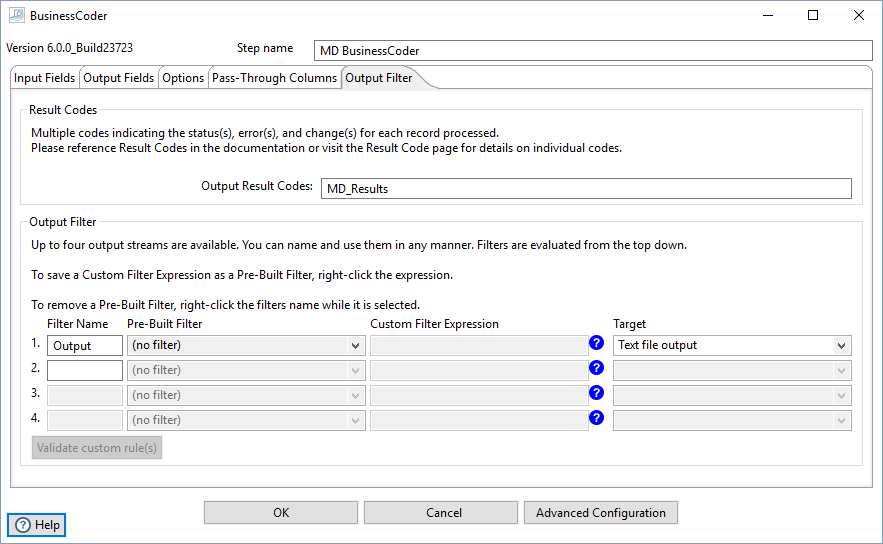Pentaho/Contact Zone:Business Coder:Output Filter
← Data Quality Components for Pentaho
| Business Coder Navigation | ||||||
|---|---|---|---|---|---|---|
| Overview | ||||||
| Tutorial | ||||||
| Advanced Configuration | ||||||
| ||||||
| Result Codes |
The Business Coder Component will output records in up to four streams. The Output Filter tab allows you to control which records go to which stream. Names and usage can be done in any manner. Filters are evaluated from the top down.

Result Codes
The output status of a record is returned via result codes returned by the underlying objects. The Component will combine them into a single, comma-delimited string and write them to the field mapped here. New field names can be created by typing the name into the Output Results Code box.
Output Filter
Select a filter to determine which records will be directed to a particular output stream. A custom filter may be created based on individual need, each pin filters the records in a cascading effect, where the results code is compared against the first expression (Pin 1) and then compared against Pin 2, and so on.
- No Filter
- All records are written to a single output stream.
- Pre-built Filter
- The Component can have pre-built filters for common applications:
- Custom Filter
- A custom rule example could be: “(FS01 OR FS02) AND NOT FE01.”
- This means that the conditions for the rules are met if either result code “FS01” or “FS02” were returned and the result code “FE01” was not returned.
- For more information, see Custom Output Filters below.
- Target
- The output which is filtered is saved in a file.
Custom Output Filter
Custom rules are an advanced subject. You should be comfortable with Boolean operations before using custom rules in a production environment.
For more information see Custom Output Filter.